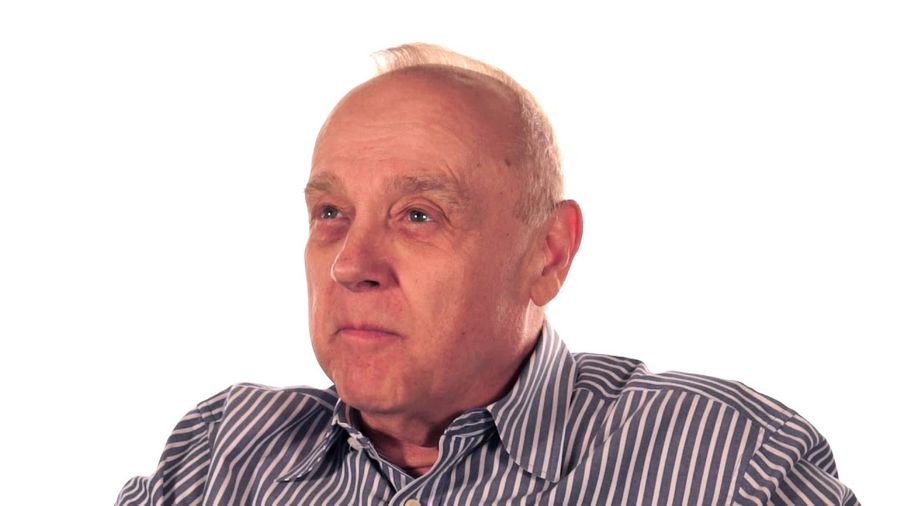Bruce Pomahac came into my office with something to show me. As director of music at the Rodgers & Hammerstein Organization—a position that was, frankly, created around him and his unique talents—he was in the middle of restoring South Pacific. A consummate musician, he had found a mistake in Bar 97 of the Overture: The melody of “A Wonderful Guy” was wrong. Having looked at all extant musical material in our archive as well as the scores that Richard Rodgers donated to the Library of Congress, he discovered the mistake had existed as far back as Robert Russell Bennett’s original full score. Should we correct it?
That attention to detail was only part of what made Bruce Pomahac an invaluable member of the staff. We were lucky to have him under our roof, but there was hardly a person connected with the New York musical theatre scene that didn’t know him, love him, and rely on his judgement. After Bruce died on April 30 at the age of 73, former Jujamcyn senior VP Jack Viertel posted that Bruce “knew more, had better taste and more open-hearted love for musicals than almost anyone I ever met.”
Bruce would attend an orchestra rehearsal and hear a wrong note that none of the rest of us noticed. He had killer ears. He saved the day at Lincoln Center Theater when an academic “critical edition’ of the score of My Fair Lady proved unusable. He provided invaluable insight, often remarking that “sometimes you just have to let music do what music does,” and was also good company: smart, funny, passionate.
I first met him through a college classmate for whom he had been an inspiration. We became friends. He was there at every momentous moment in my family’s life, from our wedding to the birth of both daughters, and he managed to create a unique relationship with each of us. I took great pleasure watching as members of both Rodgers and Hammerstein families came to love and respect him.
He was one of our silent weapons at R&H. People tend to feel that licensing houses act like police—and indeed, sometimes we must. But Bruce wanted to solve problems. When the Bard College/Daniel Fish production of Oklahoma! was getting started, they wanted a bluegrass orchestration. As we did in situations like that, we insisted they first take one song and orchestrate it the way they wanted. It wasn’t good. So Bruce sat down with the musical team and talked them through how to get their bluegrass feel while adhering to the essence of Rodgers’ score.
Growing up in South Milwaukee, Bruce started his love of musicals in high school. He was naturally talented; after he died, I found a scrapbook among his papers with articles from local newspapers describing him as a young musical wunderkind. He never saw it that way; he just saw something he could do that he loved. He studied every show the school performed and learned what made each one work. He became arranger and musical director for a group called the Brothers and Sisters, kind of a non-religious Up With People. They were often called on to perform in “industrials,” original musical productions created for companies with products to sell and salesforces to inspire. In their heyday, industrials provided good ways for creators of musicals to practice their craft. Bruce conceived, wrote, arranged, orchestrated, and conducted many over the years. (One of his for the Ford Motor Company made its way into the marvelous film Bathtubs Over Broadway.)
His secret, he told me, was to find the good stories, which were never the ones the company leadership thought would be right. He and I produced a low-paying but high-class “industrial” for the advertising department of The New York Times, which had been through the rigors of a full management consultation by the notoriously hard-edged McKinsey & Company and were in a state of shock. McKinsey had a history of controversial consultancies that left companies on their knees, and it was known that the year before, McKinsey had famously mishandled Sears Roebuck. So for the Times show, Bruce wrote a song in which a secretary confesses she had secretly fallen in love with her McKinsey man. One lyric: “If he’d kiss me once right behind my ears, if he’d make me feel what I’ve not in years, if he’d do to me what he did to Sears!” Bruce was good.
Indeed, his early dream was to write musicals. His worked with Joshua Logan on a Huckleberry Finn adaptation, but it didn’t get farther than a summer production in Louisiana. The job at Rodgers and Hammerstein turned out to be the right job for the right person at the right time. There is no better legacy than the recording we made of Allegro, which he produced, impeccably.
We decided to leave that mistake in the South Pacific overture, by the way. We figured both Rodgers and Bennett had their reasons. Why second-guess two geniuses?
Ted Chapin is a producer, performer, presenter, and former president of the Rodgers & Hammerstein Organization.


